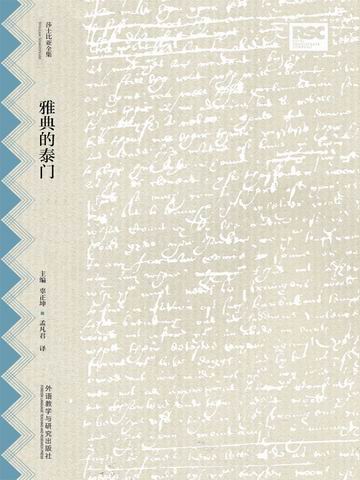卡尔·马克思最喜爱的戏剧。泰门之命终“从世俗短暂的浮华中脱离,寻求到了大自然永恒的肃穆”
In thirty-seven of Shakespeare’s thirty-eight plays, there are representations of family and sexual relationships — parents and children, siblings, lovers, married couples, usually in multiple combinations. The bonds of family and desire are the very DNA of his dramatic world. Timon of Athens is the unique exception that proves the rule. Nobody in the play has a blood relationship to anyone else. The central character has no family and no lover.
《雅典的泰门》讲述雅典富有的贵族泰门慷慨好施,却被他周围阿谀奉承的“朋友”骗光了钱财,负债累累。他最后认识到虚伪的“朋友”比窃贼更坏,于是恶毒地诅咒人类和黄金。
The real Timon of Athens lived there in the fifth century BCE, making him a contemporary of Socrates and Pericles. Shakespeare presents Timon as a figure who suffers such profound disillusionment that he becomes a misanthrope, or man-hater. This makes him a more interesting character than the caricature he had become to Shakespeare’s contemporaries, for whom “Timonist” was a slang term for an unsociable man.
- 出版说明
- 莎士比亚诗体重译集序
- 《雅典的泰门》导言
- 人物简介
- 第一幕
- 第二幕
- 第三幕
- 第四幕
- 第五幕
- 《雅典的泰门》译后记
- 书评 写书评
- 笔记
-
书评加载中...



















 京公网安备 11010802032529号
京公网安备 11010802032529号
笔记加载中...